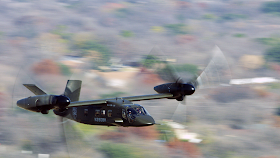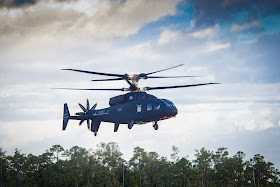Press Release
Friedrichshafen - The 27th
AERO, with its comprehensive range of products and services on offer,
will held from April 10 to 13, 2019, on Lake Constance as Europe’s
general aviation center: The spectrum of aircraft exhibited in
Friedrichshafen will extend from gliders and ultra-lights to Echo class
planes through to helicopters and business jets. Drones for civilian use
and vertical take-off and landing (VTOL) air taxis of the future will
play a role at AERO. Electric flight will be even more prominently
exhibited at the e-flight-expo. Avionics Avenue, the Engine Area, and Be
a Pilot are areas that will round out AERO’s specialized exhibits and
programming. The Flight Simulator Area will appeal to both beginners and
experienced pilots among the trade visitors.
Klaus Wellmann, Messe Friedrichshafen CEO, and Roland Bosch, Head of
AERO General Aviation, are delighted that so many renowned general
aviation manufacturers will be present at AERO Friedrichshafen with
exciting innovations. "The international trade fair not only shows the
current variety of models available for general aviation but also
provides an outlook on concepts of the future,” explains Show Director
Tobias Bretzel. With more than 700 exhibitors from 38 countries (as of
Feb. 21, 2019), AERO 2019 will set a new record in terms of industry
participation.
Details on the specialist areas of AERO 2019:
Gliding
AERO Friedrichshafen started with glider manufacturers more than 40
years ago. Whether single or double-seater and from training gliders to
the "Super Orchidee,” visitors will be able to find everything. The
German manufacturers in particular are regarded as world leaders and
have a long tradition. Manufacturers from Eastern Europe and South
Africa will now also be exhibiting numerous innovations on Lake
Constance. In addition to the proven winch and towing aircraft launching
system, retractable propulsion units with various propulsion systems,
such as piston and electric motors, are increasingly being used.
Ultralight aircraft
Ultralight aircraft are part of the sector with the most innovation in
light aviation. For example, ultralights in the form of gliders or
powered aircraft, as well as gyrocopters or UL helicopters, are
represented in large numbers at the AERO: starting with the puristic
120-kilogram single-seater, which comes close to the erstwhile idea of
extremely simple ultra-light flying, and continuing all the way up to
the new 600-kilogram weight class. A decision has been made to increase
the maximum take-off weight for three-axle ultralight aircraft from 472
to 600 kilograms throughout Europe. This regulation will be implemented
promptly in Germany. The fair will also offer information on whether and
how previous 472-kilogram ultralights can be equipped to take advantage
of the higher weight class.
Business aviation
Business aviation is increasingly becoming an important topic at AERO,
with the backbone of business aviation being formed by small jets and
turboprops in particular, which continue to enjoy great popularity due
to their low fuel consumption and short take-off and landing distances.
This topic area will be complemented by a special conference program: in
cooperation with the German Business Aviation Association (GBAA),
various lectures will be held on Thursday morning to present the wide
range of business aviation applications, which also include ADS-B
retrofitting and the use of business jets in ambulance aviation.
Powered aircraft
The leading manufacturers will be represented on Lake Constance, from
one- and two-motor piston engine planes to aircraft with propeller
turbines. This large variety of aircraft types forms the backbone within
general aviation. The new model years of proven Echo class planes will
be on exhibit, along with several aircraft making a premiere at the
trade fair. In view of an impending pilot shortage, enrollment is
currently very high at flight schools worldwide. As a result,
manufacturers of traditional one- and two-motor piston engine airplanes
are experiencing an enormous surge in demand, especially for their
training aircraft. These include many propeller planes with single
turbines, which have recently been certified in Europe for commercial
air traffic flying under instrument flight operation conditions, giving
manufacturers new sales markets.
e-flight-expo
Ten years ago, AERO Friedrichshafen launched e-flight-expo, the world’s
first exhibition for electric aircraft. When this area was launched, the
idea of powering aircraft electrically still seemed futuristic. New
challenges like air pollution and climate change are requiring new
solutions and approaches worldwide. More and more airplane types,
including commercial aircraft, are to be powered by electric or hybrid
propulsion systems in the future. In addition, corporations and
start-ups are involved in the development of vertical take-off electric
flight projects. Several taxi drones are already flying in test
operation. At e-flight-expo, these concepts for the future can be seen,
along with electric aircraft that can already be ordered.
AERODrones/UAS Expo
This year’s AERODrones/UAS Expo special exhibition can be found near the
manned aviation area of e-flight-expo. The various application
possibilities and the topic of drone driving licenses prove the
relevance of civilian drones in aviation. In cooperation with UAV Dach,
Germany’s association for unmanned aerial vehicles, aircraft of this
category that are equipped with state-of-the-art sensor and measurement
technology will be presented. In the outdoor area, there will be a
Flight Zone for Unmanned Aerial Systems. For the first time, a closed
trade event for police departments will take place in Hall A2 on the
first two days of the fair.
Engine Area
The Engine Area is well established at AERO. Once again, modern aircraft
engines from various manufacturers will be presented in a separate
area, including conventional combustion engines and innovative electric
and hybrid propulsion systems. The focus is also on maintenance and
engine management as well as development of sustainable fuels.
Sustainable fuel and power2liquid are also covered in the AERO
Conferences area.
Avionics Avenue
On Avionics Avenue in Hall A6, everything revolves around aircraft
on-board equipment. Navigation and collision warning devices, apps for
flight planning, and the Headset Test Area will be presented. The ADS-B
ultimatum, which expires in a few months (in the USA at the end of 2019,
in Europe in June 2020), forces aircraft owners to retrofit the new
transponder technology. The changeover is guaranteeing full order books
for avionics suppliers. This change applies to all aircraft owners whose
aircraft fly faster than 250 knots and weigh more than 5.7 tons. There
will be a special presentation on the ADS-B upgrade at the Business
Aviation Conference.
Flight Simulator Area
Visitors will once again find the Flight Simulator Area (FSA) in Hall
A6. The focus there will be on professional pilot training, simulators,
and software solutions for beginners who want to find out for themselves
what controlling an aircraft or helicopter feels like. A presentation
of simulators approved for training is also planned. Accompanying
presentations will take place in the Forum next to the FSA.
Helicopter Hangar
Helicopters are becoming increasingly important at AERO Friedrichshafen.
In the Helicopter Hangar in Hall B5, the central venue is the joint
booth of the German Helicopter Association. The stand includes exhibits
of the member companies from a wide variety of industries, ranging from
air rescue to passenger transport through to working aviation. The
German Helicopter Club will also be represented as an important partner.
Helicopters with piston engines or turbines for training or private and
commercial use will be on display. The Heli Forum, which is integrated
directly into Hall B5, offers trade presentations on current industry
topics.
Be a Pilot
The pilot recruiting program "Be a Pilot” will continue this year. It
offers the opportunity for visitors interested in flight training to
meet with representatives from flight schools and training providers. As
a result of the worldwide increase in air traffic and the resulting
growth in airline fleets, the demand for pilots continues unabated,
making pilot training an indispensable topic at AERO Friedrichshafen.
Airlines, business aviation providers, and working aviation companies,
including helicopter companies, need junior pilots and flight
instructors.
AERO Conferences
More than 200 lectures, conferences, and workshops on general aviation
industry topics will be held as part of the AERO Conferences. Experts
from pilot associations such as AOPA, certification authorities such as
EASA and FAA, and the manufacturer associations GAMA and LAMA will share
information and discuss the future of aviation. At the Business
Aviation Conference on Thursday, April 11, important business aviation
topics will be discussed. For the first time, the Lindbergh Innovation
Forum will be a guest at the AERO Conferences. In terms of content, this
forum offers visitors inspiring and provocative presentations by
aviation pioneers on groundbreaking technological concepts and important
breakthroughs that will decisively shape the future of aviation.
Flying to AERO
As in previous years, anyone traveling to AERO in Friedrichshafen with
their own aircraft needs a PPR slot. You can request one on-line
starting at 6 am local time on Wednesday, March 27, by visiting
www.bodensee-airport.eu.
If you fly in without a PPR slot, landing may not be possible,
depending on the number of flights, or a post-slot fee of 50 euros will
be charged. No slot reservation is required for VFR flights between 7:20
pm and 10:00 pm local time.
Every pilot landing at EDNY will receive a free day ticket to AERO.
An alternative landing opportunity without slot regulation for
ultralight aircraft will again be the Markdorf Glider Airfield from
Wednesday, April 10, to Saturday, April 13. It is possible to land
between 8 am and 7 pm local time. A bus shuttle to AERO has been
arranged.
A special service will be offered by BHS Helicopterservice, which will
provide a VIP heli shuttle from locations including the slot-free
IFR-suitable Mengen-Hohentengen Airfield to the AERO. The service will
also include custom shuttle routes on request. Interested parties can
contact the BHS (info@bhs-helicopterservice.com) directly.
AERO 2019 will take place from Wednesday, April 10, to Saturday, April
13, 2019, in Friedrichshafen on Lake Constance and will be open from
Wednesday to Friday from 9 am to 6 pm and on Sunday from 9 am to 5 pm.
Further information can be found at
www.aero-expo.com and
https://www.linkedin.com/showcase/aeroshow









